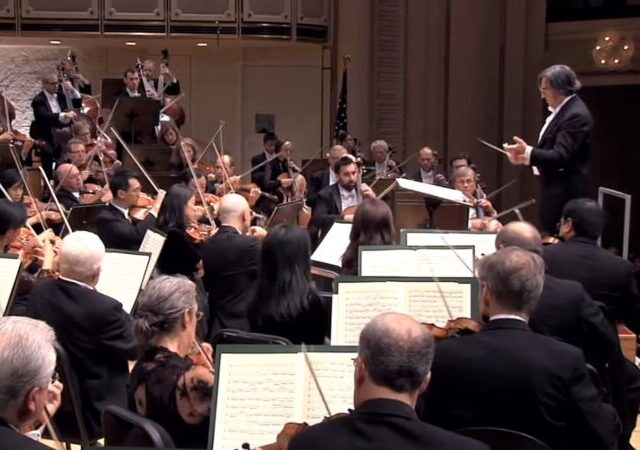The Woke Mob in Academia is Coming for Music Too

As we have shown over the last several years, no discipline will escape the left’s social justice revolution.
George Leef writes at the James G. Martin Center:
Academia’s “Ethnic Cleansing” Hits MusicOne of the most striking aspects of the “woke” domination of our education system is the way anyone who is perceived as a dissenter is likely to be targeted, much as members of a primitive tribe will attack someone from an enemy tribe who happens by. Overwhelmingly, the philosophy in our colleges is not “live and let live” but “agree with us or suffer.”If you thought the fine arts might be more mellow, think again.In a pair of cases, music educators have been subjected to academic “herd culling,” as one administrator honestly described his efforts at ridding his school of unwanted faculty members. In both instances, professors were attacked simply because they wrote things that upset some of the irritable “progressives” on campus.One of the cases arose at Western Michigan University (WMU). Since 1999, Daniel Mattson had worked as a performer and adjunct faculty member in the School of Music, his specialty being the trombone.He kept his personal life completely separate from his responsibilities at WMU. What no one at the school knew was that he had been raised in the Catholic Church, had spent most of his adult years living a homosexual lifestyle, but had later abandoned that lifestyle and returned to his earlier religious beliefs. In a 2017 book, Mattson had explained his re-conversion. He had also written a number of articles for Catholic and Christian publications.Those facts about him made no difference to anyone until 2021, when a faculty activist came across his book and immediately started a campaign to have him removed from WMU. Mattson had never talked about his personal life on campus, but that was irrelevant to his enemies. He was now known to be undesirable.The attack on Mattson was led by Lauron Kehrer, a music-school professor and proclaimed LGBTQ activist who quickly enlisted students and administrators in pressing for Mattson’s termination. She stated that his private views were “damaging” to the LGBTQ community.How did the WMU leadership respond?The then-director of the School of Music, Keith Kothman, sent an email to the campus community saying that while Mattson was “free to express his beliefs, we cannot ignore the fact that they are harmful to members of our LGBTQ community, particularly our students.”***The other music-related case involves Professor Timothy Jackson of the University of North Texas (UNT). His case erupted in 2019 when, as editor of UNT’s Journal of Schenkerian Studies (JSS), he took issue with the argument of another music professor, Philip Ewell, that the field of classical music was excessively “white” and that the Austrian musicologist Heinrich Schenker (for whom the journal is named) was a racist.Professor Jackson regarded those arguments as unfounded and decided to devote the next issue of JSS to a free-wheeling discussion of Ewell’s position. Jackson included some essays supporting Ewell and several opposing him, including his own contribution to the symposium. Jackson argued that the relative paucity of minority students in music-theory programs is due to the fact that classical music is seldom heard in their households, not to any malevolent design. He also disputed the claim that Schenker was a racist.This kind of scholarly argumentation is typical in the academic world—a debate over the merits of a claim. Unfortunately, debate is not always welcome these days, especially when it involves a challenge to someone who says that he has identified a new aspect of racism. As Jackson discovered, arguing against such a claim will land you in deep trouble.Almost immediately after the publication of the JSS symposium, a group of UNT graduate students published a letter denouncing Jackson for his own “racism” in taking issue with Ewell. The students demanded Jackson’s termination. Several of his faculty colleagues piled on, and the UNT administration sided with the mob calling for Jackson to be punished. It launched an “investigation” into JSS, aiming to find abuses, and it removed Jackson from his position as editor. Moreover, he was banned from participation in committee work in his department.In sum, the university retaliated against Jackson for having spoken his mind on an academic question. Feeling that his rights had been violated, Jackson filed suit in federal court. The case has been in litigation since 2019, and you can read his complaint here. His suit named several UNT officials as defendants, including members of the Board of Regents.At the time the suit began, I wondered if UNT would settle and avoid a costly court battle involving a transparent First Amendment violation. No, UNT would go to court, running up legal bills rather than admitting that it had trampled over a professor’s rights. Texas taxpayers ought to be angry.The case is still ongoing, but a recent decision by the Fifth Circuit Court of Appeals clears the way for the suit to proceed against all the defendants, including the Board of Regents members. As we read in this Legal Insurrection article, the court brushed aside the “qualified immunity” defense that the defendants raised, meaning that they could be held personally accountable for damages if Jackson prevails.
CLICK HERE FOR FULL VERSION OF THIS STORY